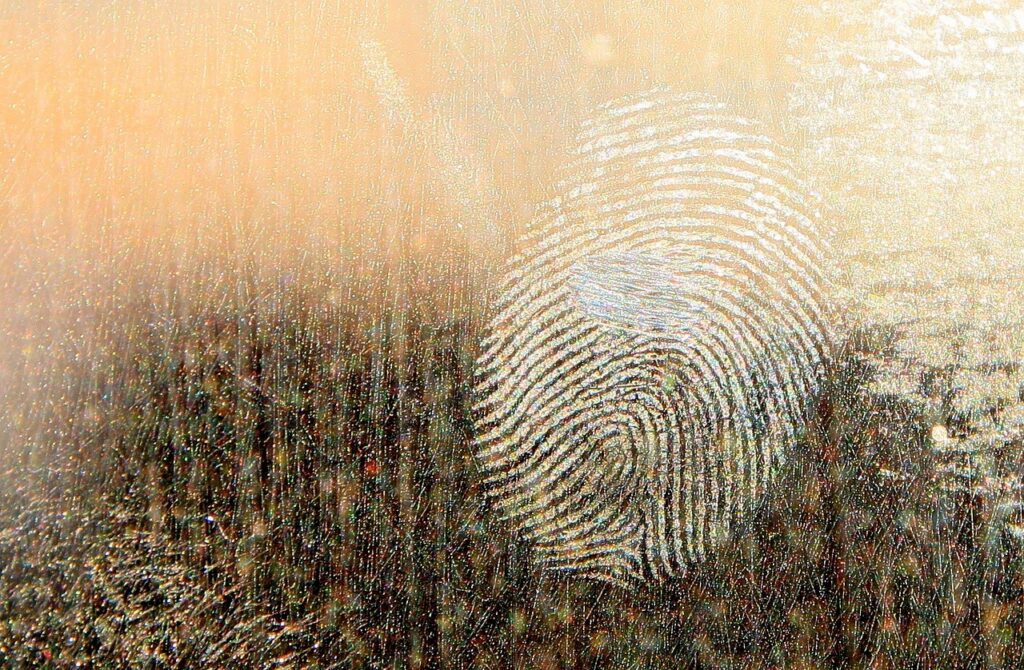Key takeaways
- Forensic science involves collecting, preserving, analyzing, and interpreting crime scene evidence to find science-backed facts to aid criminal investigations.
- A degree in forensic science opens many career opportunities such as Crime Scene Investigator, Forensic Science Technician, Fingerprinting Technician, DNA Analyst, and so on.
- Essential factors to consider when choosing a forensic science school in Texas are faculty expertise, campus facilities, experiential learning opportunities, and so on.
- Forensic science is a vast field so it is better to pursue a concentration track such as toxicology, ballistics, odontology, entomology, and so on.
- Also consider admission and graduation rates when choosing forensic schools in Texas.
- Best forensic science colleges in Texas include Texas A&M University, St. Edward’s University, and the University of Texas at El Paso.
Forensic science is a technical field that requires an array of skills, including technical and professional skills. To succeed in the field, you must possess in-depth knowledge of scientific principles, techniques, best practices, and tools used to analyze evidence from the crime scene to help solve the crime. If you want to pursue a career in the field and Texas is your study destination, this is the guide for you.
Here, we list some of the best forensic science colleges in Texas and provide essential information for aspiring students. In this guide, you will find details about what the forensic science programs in Texas universities have to offer aspiring professionals, tuition information, acceptance and graduation rates, and more.
What is forensic science?

Forensic science is a broad field that encompasses disciplines such as chemistry and biology to analyze forensic evidence through the application of scientific principles. It is primarily used to aid criminal investigations and legal proceedings by providing irrefutable, science-backed evidence. Forensic science provides objective scientific evidence that determines the facts of a case and helps it conclude.
It is a vast field with many sub-disciplines such as:
- Forensic Biology – DNA testing, bodily fluid analysis, and so on.
- Forensic Chemistry – checking for toxins, chemicals, and drugs.
- Toxicology – analysis of poisons and drugs
- Entomology – analysis of insects
- Odontology – analysis of teeth and dental structures
- Anthropology – analysis of skeletal remains
- Computer science – analysis of evidence in digital crime
- Document examination – checking of documents to ensure authenticity
- Ballistics – analysis of bullets, guns, and firearms
What can you do with a degree in forensic science?
A degree in forensic science can open doors to many career pathways for graduates in criminology, criminal justice, and criminal investigations. You can either choose lab-oriented roles such as Forensic Science Technician, or even choose roles such as Crime Scene Investigator where you will primarily be engaged in field work.
Moreover, if you are passionate about solving and preventing digital crime, you can choose to specialize in digital forensics or forensic accounting to help prevent theft, fraud, and other digital crimes. Some jobs you can explore with a forensic science degree are:
- Crime Scene Investigator
- Forensic Toxicologist
- Forensic Biologists
- Blood Splatter Analyst
- Ballistics Expert
- Arson Investigator
What to look for in colleges for forensic science in Texas?

When it comes to finding forensic programs in Texas, the choices are endless. The state has over 220 four-year colleges and universities for you to choose from. Though not all higher educational institutions offer forensic degrees in Texas, a significant enough number do, presenting aspiring professionals a challenge when searching for forensic schools in Texas. Here is a list of what to look for when choosing a college to pursue higher education.
Faculty Experience
Make sure the program is taught by industry professionals with a proven track record of professional success. Since forensic science is a technical field, on-the-job training, and practical experiences teach a lot more than theoretical courses. Thus, renowned schools in Texas for Forensic Science hire industry professionals with ample experience to teach the program.
Hands-on Learning Opportunities
Internships, job placements, projects, and practical learning opportunities teach a lot more than textbook learning in the classroom. Explore forensic science majors in Texas to find ones with a well-balanced curriculum with the ideal blend of theoretical learning and practical learning opportunities.
Campus Facilities
Labs, tools, and technologies comprise an essential part of the forensic science field. The best colleges for forensic science in Texas have fully functional labs and extensive facilities allowing students to practically work on projects and forensic analysis to build relevant skills before entering the professional field.
Specialization Options
Forensic science is a vast field with several available concentration tracks. Whether you want to go into biology, toxicology, odontology, or computer science is totally up to you and your career aspirations. Just make sure to check forensic science programs in Texas to determine if your chosen college offers the specialization you want to opt for before applying.
5 of the best forensic science colleges in Texas

Ready to kickstart your career in the field, here is a list of some of the colleges you can explore for forensic degrees in Texas.
Sam Houston State University
Sam Houston State University offers a Bachelor of Science in Forensic Chemistry with the option to pursue a Criminal Justice or a Forensic Science Minor. The program’s comprehensive learning curriculum features courses covering a broad range of topics. Here, you will develop a wide range of marketable skills under the university’s marketable skill-building initiative. As an aspiring forensic science professional, you can expect to learn:
- How to work safely in a chemistry lab
- Safe handling of chemicals
- Maintain detailed records of chemistry experiments
- Write reports
- Present findings
- Analyze and interpret experiment data
| Location | Acceptance % | Graduation % | Tuition |
| Huntsville, Texas | 85% | 54% | $11,370 in-state
$23,670 out-of-state |
Texas A&M University
Texas A&M University offers a Bachelor of Science in Forensic and Investigative Sciences. If you love gathering evidence and problem solving this is the program for you. The program is designed to prepare students wanting to pursue careers revolving around gathering evidentiary information, preserving and processing, and using it to solve mysteries, problems, and cases.
Whether you want to go into forensic science, criminal investigations, or work in an industrial or medical setting, this program is the ideal choice for you. The program is accredited by the Forensic Science Education Programs Accreditation Commission, which is a testament to its quality of education.
| Location | Acceptance % | Graduation % | Tuition |
| College Station, Texas | 63% | 81% | $12,413 in-state
$40,307 out-of-state |
University of North Texas
The University of North Texas offers one of the best forensic science programs in Texas. Here, you will not only get an excellent education but also benefit from the presence of two undergraduate advisors you can seek professional advice and career guidance from. Moreover, the university boasts state-of-the-art labs and technologies along with expert faculty, which is the dream package when it comes to forensic programs in Texas.
Through the program’s extensive curriculum, you will explore the application of science to criminal and civil law. What makes the program even better is that here you can pursue forensic science majors in Texas in a bachelor of science degree in biology, chemistry, or biochemistry.
The program offers a range of courses such as Forensic Chemistry, Instrumental Analysis, Biomedical Criminalistics, Quantitative Analysis, and so on. Through the program, you will build a range of technical, analytical, and professional skills opening a range of career opportunities for you.
| Location | Acceptance % | Graduation % | Tuition |
| Denton, Texas | 79% | 65% | $11,164 in-state
$21,244 out-of-state |
St Edward’s University
If you are looking for great undergraduate forensic science programs in Texas, specifically Austin, the bachelor’s degree in Forensic Science at St. Edward’s University is the choice for you. Here, you will learn the essentials of the field of forensic science, building relevant skills through a range of practical and theoretical courses. Upon graduation, you will be prepared for a range of entry-level roles in the field of forensic sciences such as crime scene investigator, fingerprint technician, or forensic science technician.
The program is taught by experienced faculty, who bring a wealth of knowledge and experience gained on the job to the classroom. The program is designed to teach aspiring professionals how to approach crime scenes methodically and use critical thinking and creativity to collect, preserve, and analyze evidence so it can be presented in a court of law.
| Location | Acceptance % | Graduation % | Tuition |
| Austin, Texas | 85% | 64% | $51,384 |
University of Texas at El Paso
At the University of Texas at El Paso, you have the option to choose from one of the two forensic science degrees the University offers, Forensic Biology or Forensic Chemistry. Both programs have excellent learning outcomes and the right choice for you will depend on your career aspirations.
If you aspire to become a DNA analyst or go on to become a Medical Examiner, Forensic Biology is the program of choice for you. However, if you want to be a toxicologist or go into analytical chemistry, Forensic Chemistry may be the ideal choice for you. Both programs feature extensive curriculums with a heavy focus on science and mathematics courses.
Through the program, you will build job-specific and industry-relevant marketable skills that can help you secure entry-level roles in the professional field.
| Location | Acceptance % | Graduation % | Tuition |
| El Paso, Texas | 100% | 37% | $9,744 in-state
$25,512 out-of-state |
Enroll in one of the best schools in Texas for forensic science today!
If you want to pursue a career in forensic sciences, do it right by pursuing a formal education in the field first. You can either pursue a standalone degree in the field or study criminology with major in forensic science. You can also pursue forensic science as a major in other relevant programs. There are several colleges for forensic science in Texas offering academic excellence for aspiring professionals living in or around the state. Choosing the right program and college is an essential first step for a successful career in the field. Make sure you carefully consider forensic schools in Texas before shortlisting ones to apply to. We wish you the best of luck in your college hunt!
